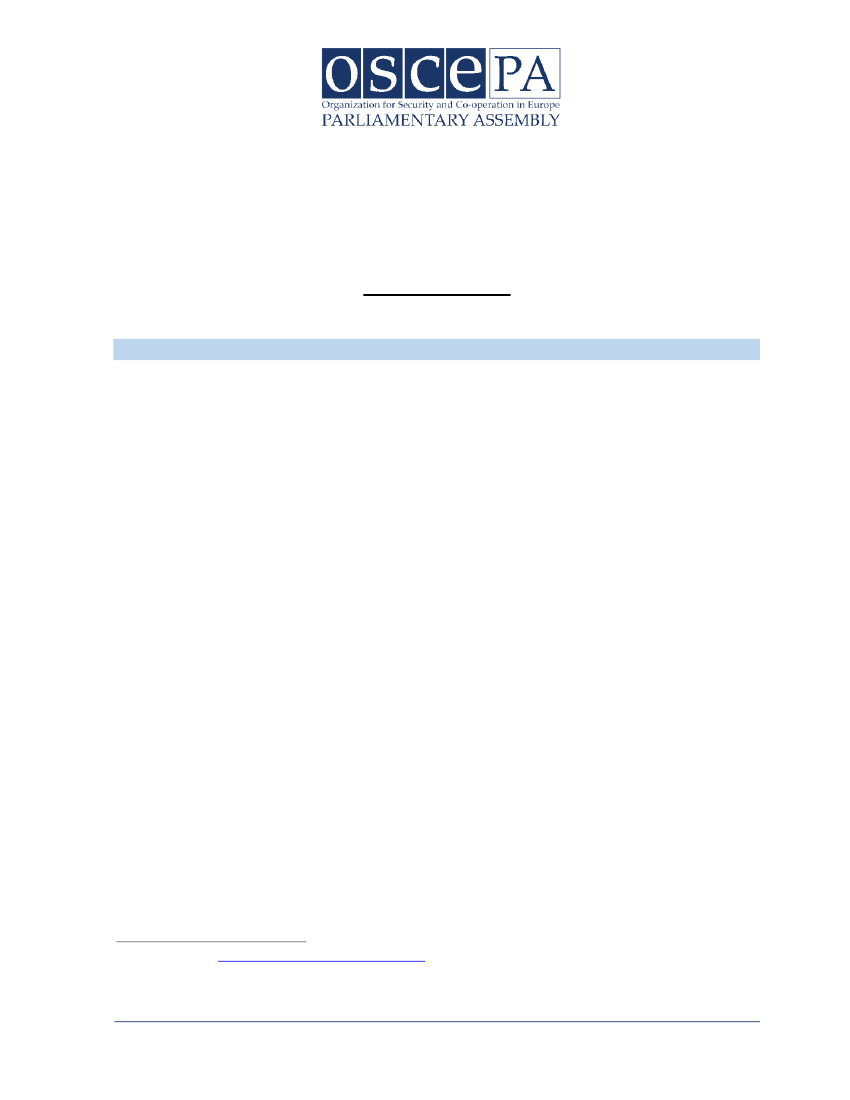
Parliamentary Web Dialogue on Violence Against Women Journalists
and Politicians: A Growing Crisis
Wednesday, 10 November 2021, 14:00 – 16:00 CET (online)
CONCEPT NOTE
BACKGROUND AND FOCUS
Violence against women journalists and politicians remains a growing challenge within the OSCE region and in
the world. While women have always faced serious challenges when participating in the public sphere, the past
decade has witnessed an alarming rise in gender-based violence
1
in the political and media fields, particularly in
the online realm.
Challenged in part by the broader global context (e.g. the backsliding and disregard of democratic safeguards;
the transition from traditional to new media business models; the growing power of community-driven
platforms in conveying information; and more recently, the human, economic and social impact of the COVID-
19 pandemic), the well-being of journalists and politicians during and beyond the course of their work has been
compromised. In addition, pre-existing patriarchal values have devastating effects on gender equality,
encouraging intolerance and misogyny towards women in public life with the goal of creating divisions and
cultivating fear.
The free and safe participation of journalists and politicians – both women and men – in their respective fields
is essential to the health of any democracy. In particular, independent fact-based journalism is key to combatting
disinformation that damages democratic ideals. For example, the recent awarding of the 2021 Nobel Peace Prize
to two journalists recognizes their work in defending freedom of expression and its connection to peace and
democracy. At times, actors – individuals, organized groups or state-supported groups – spread disinformation
with the intent of harming women journalists and politicians; these actors must be held accountable. The
Internet, including social media and digital platforms, has become a necessary and often primary tool for
journalists and politicians to connect with colleagues, reach out to the public, conduct research, and express
themselves. However, despite the immense opportunities presented by the Internet and digital social spaces, it
often enables new forms of online violence against women to become widespread. In particular, women
politicians and journalists have become increasingly targeted as visible and outspoken advocates of women’s
rights. Addressing this evolving form of gender-based violence comes with unique challenges. For instance,
legislation – such as hate speech laws – must be updated to reflect the unique difficulties in taking action against
perpetrators of online violence. Additionally, law enforcement agencies and the legal system need guidance
from legislators as to how to respond when women report online violence. As well, legislators must examine
the role and responsibility of social media organizations in combating this online hate.
1
According to the
International Federation of Journalists (IFJ)
and its Campaign to end impunity for Crimes against Journalists, 999
journalists have been killed since 2010, most of them engaged as local journalists. It states that 2644 journalists have lost their lives
since 1990, with justice and compensation being rarely delivered as only 1 out 10 crimes against journalists are solved.
1